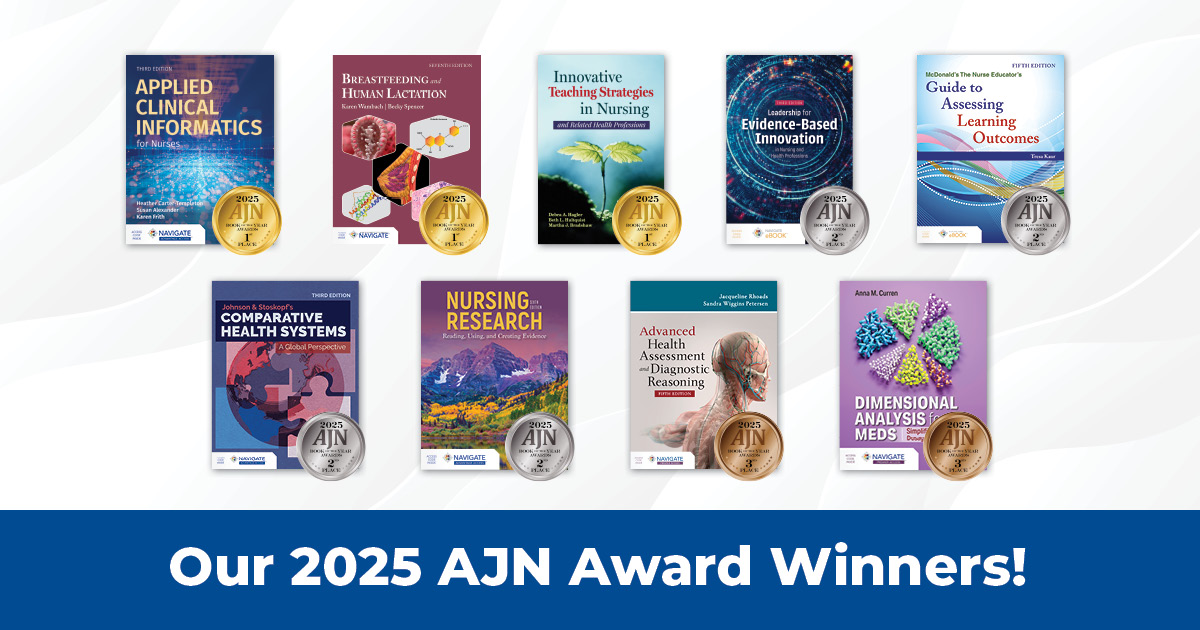-

The 2025 AJN Book of the Year Awards honored nine textbooks published by Jones & Bartlett Learning. The company’s continued success in this prestigious awards program reflects Jones & Bartlett Learning’s longstanding commitment to high-quality, learner-centered content and innovation in healthcare education.
-

A well-known healthcare executive and educator says traditional approaches to preparing nurses aren’t keeping pace with complexities in healthcare delivery. He outlines how academic programs must adapt — now.
-

The need for an interprofessional approach, which requires the healthcare team to work cooperatively to improve patient care outcomes, has been acknowledged for decades. Read on to learn how to incorporate it in your curriculum.
-

Much has changed in the past 48 years in the NANDA-I classification system. Unfortunately, one aspect of nursing diagnosis has not changed: The primary application of nursing diagnoses is in standardized care plans. Read author Lynda Carpenito's expert opinion.
-

In most industries, toxic leadership leads to low employee morale and high employee turnover. But in healthcare—particularly nursing—toxic leadership can actually lead to negative patient outcomes and even death.
-

Discover the importance of mastering the teach-back method in nursing and how it can improve patient outcomes and communication.
-

Explore the disparities between statistical and clinical significance in the context of nursing practice, highlighting their respective roles in evidence-based decision-making and patient care.
-

Learn clinical teaching strategies and assignments that can promote the utilization of standardized care plans by fundamental students and the other initial clinical courses.
-

Healthcare is an ever-evolving landscape, yet the art of teaching nursing fundamentals remains a cornerstone in molding the next generation of skilled and resilient nurses.
-

Nurses are in demand. Instructors today need to navigate an increasingly complex set of circumstances in order to prepare students for the field. Find out what tools you need in your teaching toolkit.









